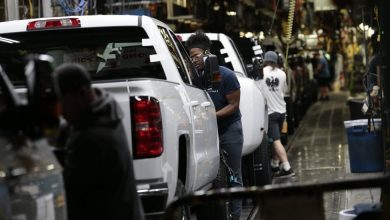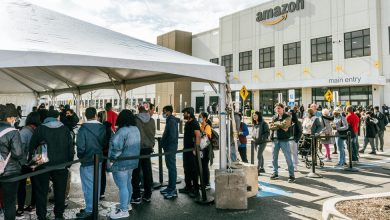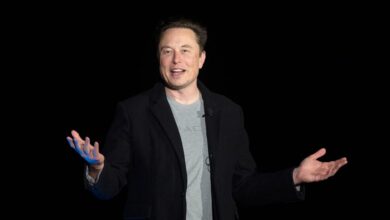Those Dedicated to Limiting Harmful Posts Worry About Twitter Under Musk

SAN FRANCISCO — After Brianna Wu, a software engineer and game developer, faced violent threats on Twitter in 2014 as part of a virulent campaign that came to be known as “Gamergate,” she worked with the company to build tools to expunge misogyny, violence and disinformation online.
Today she worries that all of that could be undone by Twitter’s new owner: Elon Musk, the world’s richest man, who reached a deal to buy Twitter this week for roughly $44 billion.
Mr. Musk’s vow to protect free speech as he “unlocks” the company’s potential has raised alarms among those who have in some cases devoted careers to fighting the toxic and at times dangerous flow of misinformation and disinformation.
Although his exact plans remain unclear, they cite his promises to remove barriers to free speech, as well as his own record of provocative, at times insulting, statements on Twitter, including calling a British diver involved in the 2018 rescue of children trapped in a cave in Thailand a pedophile.
“I think it’s going to just be an increasing free-for-all,” Ms. Wu said in a telephone interview.
For Media Matters for America, the liberal-leaning research organization, reasons for concern could be found in the celebratory responses from people Twitter had expunged from the platform for violating its rules of behavior.
They include prominent conservative figures like Steve Bannon and Representative Marjorie Taylor Green; the broadcaster Infowars; and even a QAnon figure called “Clandestine,” who helped spread a Russian conspiracy theory about American biological weapons labs in Ukraine.
Angelo Carusone, the president of Media Matters for America, said that Mr. Musk would have the power as Twitter’s sole owner to unwind many of the efforts that have put the company in the vanguard of social media companies when it came to restricting harmful or hateful abuses.
In a tweet, he compared Mr. Musk’s takeover to the launching of Fox News in the name of providing a balance to what its founders, Rupert Murdoch and Roger Ailes, viewed as the “liberal media.”
Though smaller than other platforms — with 217 million daily users, compared with billions on Facebook and Instagram — Twitter’s moderation efforts had served as an example that campaigners like Mr. Carusone could point to when urging other companies to do more to rein in dangerous misinformation.
“Do I think Elon Musk is going to be a vanguard about addressing the problems of disinformation and rising extremism? No, I just don’t,” he said, adding, “I think there’s a very strong case to be made that there’s going to be a dilution of whatever policies Twitter has had in place.”
How Elon Musk Bought Twitter
A blockbuster deal. Elon Musk, the world’s wealthiest man, capped what seemed an improbable attempt by the famously mercurial billionaire to buy Twitter for roughly $44 billion. Here’s how the deal unfolded:
The initial offer. Mr. Musk made an unsolicited bid worth more than $40 billion for the influential social network, saying that he wanted to make Twitter a private company and that he wanted people to be able to speak more freely on the service.
The response. Twitter’s board countered Mr. Musk’s offer with a defense mechanism known as a “poison pill.” This well-worn corporate tactic makes a company less palatable to a potential acquirer by making it more expensive for them to buy shares above a certain threshold.
Securing financing. Though his original offer had scant details and was received skeptically by Wall Street, Mr. Musk moved swiftly to secure commitments worth $46.5 billion to finance his bid, putting pressure on Twitter’s board to take his advances seriously.
Striking a deal. With the financing in place, Twitter’s board met with Mr. Musk to discuss his offer. The two sides soon reached a deal, with the social media company agreeing to sell itself for $54.20 a share.
What’s next? Shareholders will vote on the offer, which will also be reviewed by regulators. The deal is expected to take three to six months to close. In the meantime, scrutiny is likely to be intense and several questions remain about Mr. Musk’s plans for the company.
Mr. Musk’s fortune and celebrity — he is also behind Tesla and SpaceX — will give him a powerful bully pulpit in the roiling debates over the limits of free speech, which he called “the bedrock of a functioning democracy” in a statement on Monday announcing the purchase.
He could also face financial and political constraints, like a new law by the European Union to require social media platforms to scrub their sites of misinformation and abuse. That could temper some of the “sky is falling” fears of his takeover.
At least one idea he has floated, making public the algorithms the company has designed, echoes those put forward by people in favor of reducing harmful content.
They include, most prominently, former President Barack Obama, who last week outlined a vision for combating disinformation at a conference at Stanford University that included subjecting algorithms to greater scrutiny and regulation.
“The real problem,” said Rachel Goodman, counsel for Protect Democracy, a nonpartisan nonprofit, “is that the future of how we share and advance knowledge and debate the issues central to our democracy shouldn’t depend on whether a single person in control is a superhero or supervillain.”





